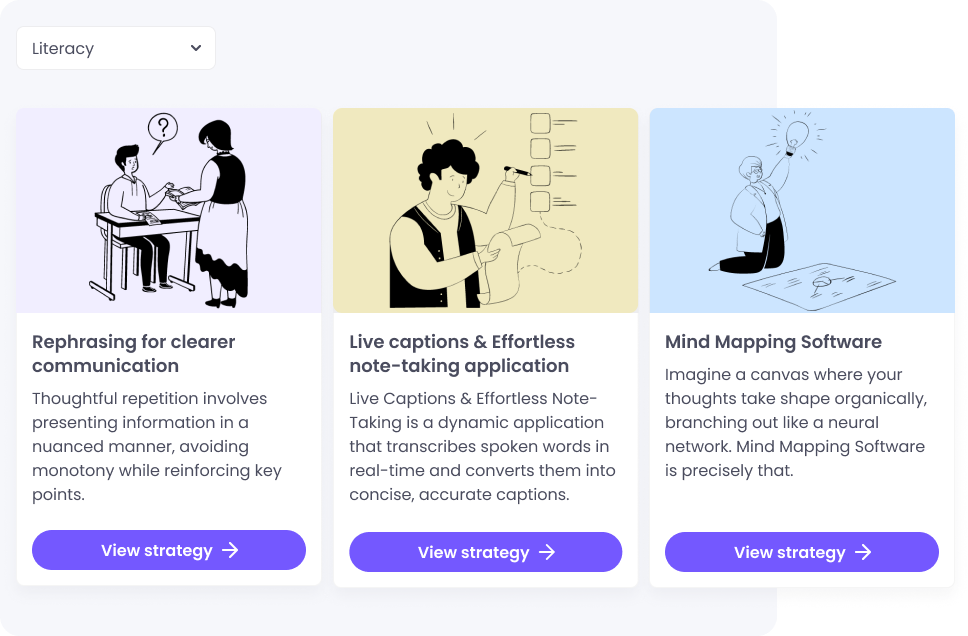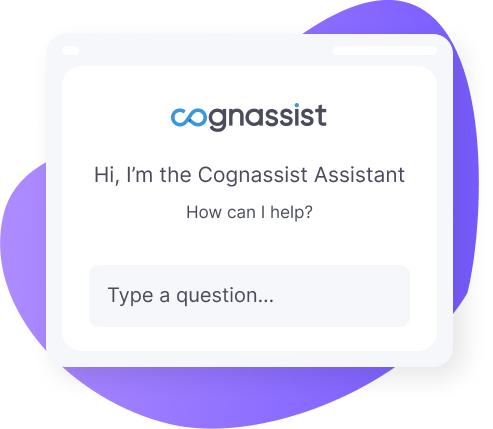Personalised workplace adjustments
Smart solutions for workplace challenges.
Transforming the workplace by enhancing and balancing diverse abilities for better outcomes.
Book a demo See pricing
Employers strive to cultivate a workplace environment tailored to the unique needs of their employees. Employees actively seek personalised support, enabling the ability to thrive. A significant challenge lies in providing adjustment strategies that cater to everyone’s needs.
Tailored adjustments and strategies for both employees and their managers, carefully curated based on disclosure, job role and cognitive profile. Enable your teams by providing adjustment strategies for everyone.
Employees can get instant access to personalised workplace adjustments based on disclosing a neuro-difference.
Employees can get instant access to personalised workplace adjustments based on providing details or questions to our AI assistant.
Adjustments are tailored to the employee’s results from taking the Cognassist Cognitive Diversity Assessment.
Cai, delivers personalised insights tailored to each employees cognitive map. Cai offers customised recommendations to boost support, productivity, and inclusivity.
You can also ask Cai for strategies to support colleagues or direct reports, gaining practical advice on communication, workload management, and enhancing inclusivity. Integrating Cai into your workflow ensures every team member receives the support they need to thrive, creating a more cohesive workplace culture.

Top tips to empower different thinkers in your organisation and break down barriers in the workplace.
Download your free handbookWorkplace adjustments save on recruitment costs and retain valuable talent.
Adhering to the Equality Act 2010 by making adjustments for neuro-minority individuals prevents legal issues and enhances reputation.
Organisation can confidently say they provide all employees the opportunity for support, even if they are not yet ready to disclose.
Personalised workplace adjustments boost job satisfaction through employer support and accommodation.
Create a comfortable, accessible environment can reduce stress and boost mental health.
Providing tools and resources enhances productivity by removing barriers, enabling focused work.
Informa Markets partnered with Cognassist to foster neurodiversity, creating a supportive and inclusive workplace for all employees.
See full story